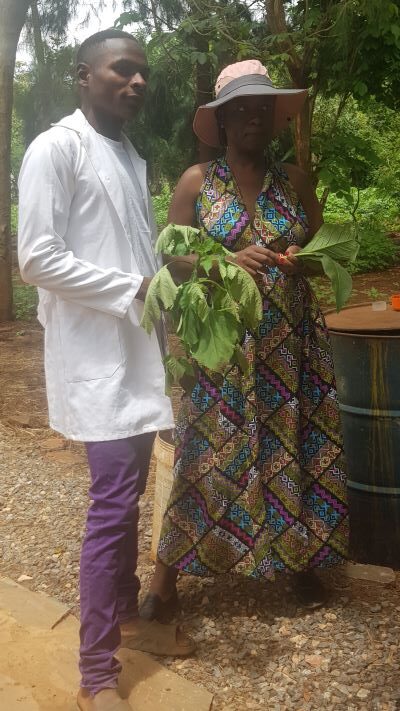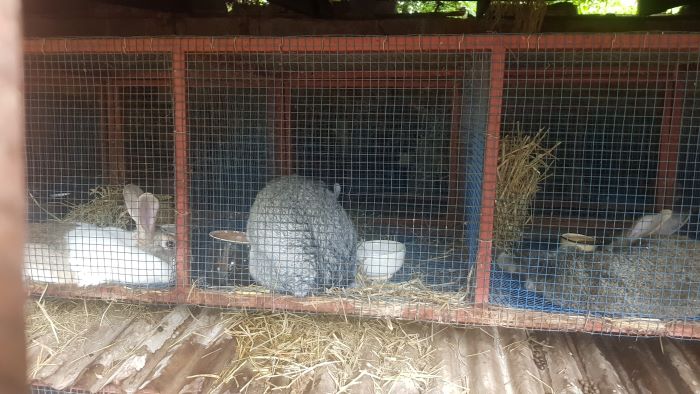By: Jeff Kapembwa
The high cost of fertilizer, its effects on the soil can best be resolved through the use of organic farming and the use of natural manures if Africa is to increase its food security, a Zambian farmer has argued.
As the globe ponders on the threats of increased cost of food and inputs on Africa, spurred by geopolitical and climate change developments, Loctaguna Organics Proprietor, Kanangwa NewLove contends that organic farmers were the best solution-devoid of dangerous additives.
Located in New Kasama, East of Lusaka, Loctaguna Organics supports organic farming as opposed to the much espoused conventional farming.
Her notion is that chemical fertiliser and use of hybrid seed is expensive. The promotion of chemical fertilizer and hybrid seed contradicts the use of science and the natural way in farming ‘allows growing and production of pure food.
Instead of applying fertilizer to crops and feeding animals on inorganic developed feed, organic farming which encourages use of manure and other fermented liquid, was the ultimate for Africa’s food sovereignty and retention of indigenous seed which is scientifically cheap and healthy for human consumption.
In an interview during Farmers Review Afirca’s visit to the farm, lying 50-kilometes east of the capital, Ms. NewLove, farmer of organic products to various outlets within and beyond Lusaka and firm believer in natural science believes food shortages can be averted.
 She urges African farmers to adopt organic farming to better the ecosystem through agro ecological practices.
She urges African farmers to adopt organic farming to better the ecosystem through agro ecological practices.
“We are practicing and growing organic food for human and animal consumption because it is healthy and nutritious and it is the most effective way of fighting climate change,” she said.
” We are not applying fertilizer or any other inputs or hybrid seed because we believe science is the best solution to fighting climate change, and that is our philosophy,”
Loctaguna farm has in recent years exploited its market niche to various customers that opt for organic food unlike those produced conventionally.
She is exploiting reputed and international Chain stores, among others, Pick and Pay to reach her discerning customers.
Her 10-hectare farm produces a variety of organic foods, sold weekly. The products like soya beans, cowpeas, mushroom, maize, green beans, goats, rabbits, chickens in addition to a variety of vegetables, all produced using traditionally prepared manure and herbal crops that are used for medicinal purposes and our market is growing rapidly.
“The demand for our products (organic food) is overwhelming, and we are supplying a cross section of customers and of late we have had a lot of inquiries from people living beyond Zambia for a variety of food and other herbal related crops and we are trying to meet the market needs”
Loctaguna farm is forced to plant an average 3,500 various plants on the farm assisted by 13 of her staff to cultivate, prepare the land and plant as well as other processes such as making fertilizer and running other necessary production units on the farm.
Arguable, the farm maximizes on weeds unlike land whose crops are bred through fertilizer or hybrid seed as part of developing the ecosystem as that enriches the soil. All matters, treated as weeds in farms where imported fertilizer farms are used are in contrast as hers enriching the soil.
“We allow all acts of natural science to promote the ecosystem and enriching the soil, mulching, push and pull are all part of the organic farming system and we don’t throw away anything, including rabbit urine and duck waste is all part of the production cycle to promotes sound growth of crops being grown,” Ms. NewLove revealed of the farm she has used since 1998.
Ms. NewLove makes her own liquid fertilizer as part of the promotion of organic farming, using raw plants by mixing Comfrei and Tithonia with water which when fermented for 14 days, all work as a foliar.
The mixture of various crops, beans, pumpkins, and other varieties in one bed allows an interchange of nitrogen while keeping away pests from each other and allowing natural growth of the plants unlike using pesticides.
“All we do is to mix these ingredients and after 14-days, it will have fermented and is ready for use, one advantage also of this combination is that it helps us fight pests while it doubles the yield as opposed to using chemical fertilizers.”
Justifiably, her farm had recently grown on one hectare one (1) hectare using organic fertilizer with another farmer applying conventional-chemical fertilizer.
When harvesting, Ms. NewLove had a premium of 30 percent more compared to the other farmer-creating profit on organic usage.
The argument is that fertilizer and pesticides are unhealthy to the majority of people consuming such food due to chemicals which have an effect on the food produced and consumed. Whereas, organic fertilizer produces healthier food.
One of the major advantages is that the cost of production is lower because raw materials are grown on the farm and are readily available.
Her testimony is that this option should help farmers to seriously think about shifting to organic farming because of the numerous advantages and is above all, cost effective.
This includes crops that are grown at a lower cost, promotes good health and nutritious food coupled with selling organic crops at a premium.
“Growing food organically enables individuals to have independence in terms of the food they consume as well as sale to potential markets to earn an income while avoiding health implications.”
Ms. Lovemore is arguably one of the global campaigners of organic farming and has in recent years met various people-weekly-wanting to learn to grow crops organically so as to promote healthy living.
Her maximization of organic foods has given her impetus to influence most mindsets as part of the climate change campaign. She envisions by practicing organic farming, it will promote consumer health food for healthy living while making a living out of sales of such products.
She warns against sustained conventional farming noting that crops and food raised through such practices has implications for future generations.
Numerous studies and research has shown that soil infertility, diseases, among other factors has been perpetuated over the years because of the people shifting in the type of agriculture practiced which has mostly encouraged the use of chemical fertilizer.
Arguably, Ms. One Love argues, this type of agriculture has recorded low yields within and beyond Africa and also led to high soil acidity which is unhealthy for plant growth.
Organic farming, it is clear that the soil nutrients are easily replenished with the right practices. The use of cuck waste, a mixture of various food products, is also healthy for the animals unlike applying chemicals when feeding livestock, goats, chickens, rabbits and other farm produce because of high nutrition.
“We need to re-think this whole; fertilizer and hybrid seed concept altogether and shift to nature and science which supports the ecosystem/”this (organic) type of farming uses every inhabitant in agriculture and this is what my fellow farmers ought to revert to because of less management, promotes independence to food choices, enhances food security”.
Africa has in recent months been caught in a food and interest rate rise conundrum. These factors are threatening the continent’s food security for the majority population as conflicts in Ukraine against Russia invasion heightens-raising the cost of fertiliser to over 150% as well as other inputs.









[…] Source link […]
Comments are closed.